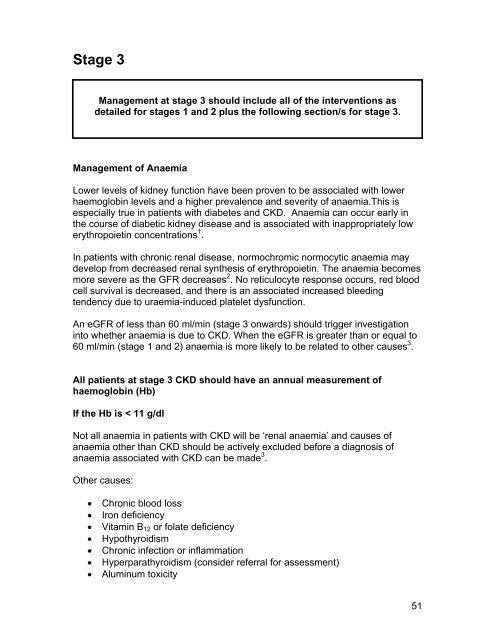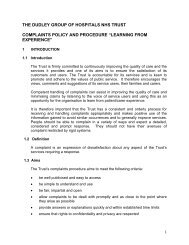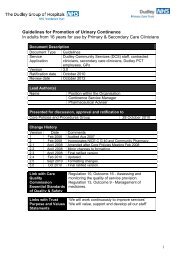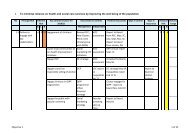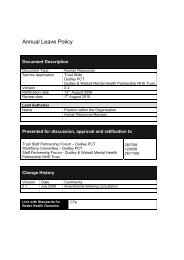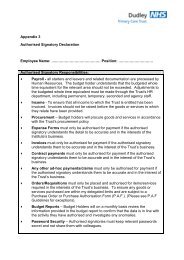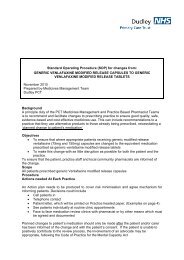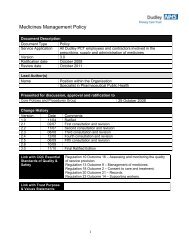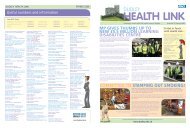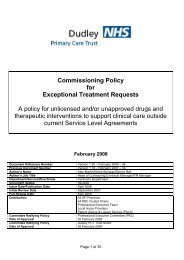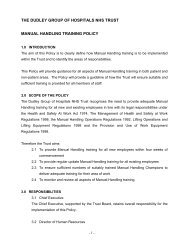Chronic Kidney Disease Pathway Document Description Presented ...
Chronic Kidney Disease Pathway Document Description Presented ...
Chronic Kidney Disease Pathway Document Description Presented ...
You also want an ePaper? Increase the reach of your titles
YUMPU automatically turns print PDFs into web optimized ePapers that Google loves.
Stage 3<br />
Management at stage 3 should include all of the interventions as<br />
detailed for stages 1 and 2 plus the following section/s for stage 3.<br />
Management of Anaemia<br />
Lower levels of kidney function have been proven to be associated with lower<br />
haemoglobin levels and a higher prevalence and severity of anaemia.This is<br />
especially true in patients with diabetes and CKD. Anaemia can occur early in<br />
the course of diabetic kidney disease and is associated with inappropriately low<br />
erythropoietin concentrations 1 .<br />
In patients with chronic renal disease, normochromic normocytic anaemia may<br />
develop from decreased renal synthesis of erythropoietin. The anaemia becomes<br />
more severe as the GFR decreases 2 . No reticulocyte response occurs, red blood<br />
cell survival is decreased, and there is an associated increased bleeding<br />
tendency due to uraemia-induced platelet dysfunction.<br />
An eGFR of less than 60 ml/min (stage 3 onwards) should trigger investigation<br />
into whether anaemia is due to CKD. When the eGFR is greater than or equal to<br />
60 ml/min (stage 1 and 2) anaemia is more likely to be related to other causes 3 .<br />
All patients at stage 3 CKD should have an annual measurement of<br />
haemoglobin (Hb)<br />
If the Hb is < 11 g/dl<br />
Not all anaemia in patients with CKD will be ‘renal anaemia’ and causes of<br />
anaemia other than CKD should be actively excluded before a diagnosis of<br />
anaemia associated with CKD can be made 3 .<br />
Other causes:<br />
• <strong>Chronic</strong> blood loss<br />
• Iron deficiency<br />
• Vitamin B 12 or folate deficiency<br />
• Hypothyroidism<br />
• <strong>Chronic</strong> infection or inflammation<br />
• Hyperparathyroidism (consider referral for assessment)<br />
• Aluminum toxicity<br />
51


